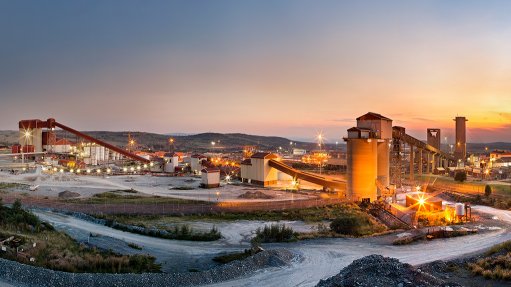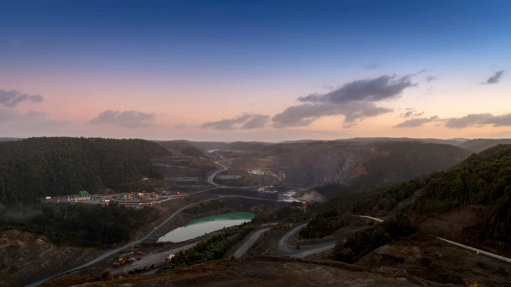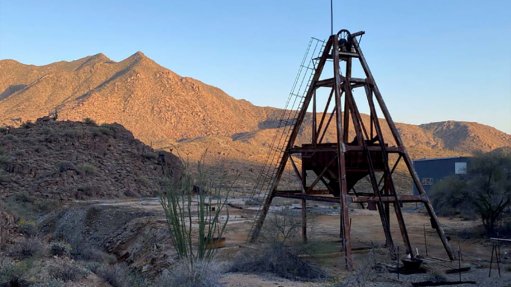Mining companies in danger of perceived ‘SDG-washing’ – report
Many of the world's largest mining companies risk the perception that they are “Sustainable Development Goal- (SDG-) washing” through selective reporting of their impacts on these universal goals, the ‘Responsible Mining Index (RMI) Report 2020’ reveals.
The report was released on Monday by independent research organisation, the Responsible Mining Foundation (RMF).
The report states that companies often highlight in their sustainability reports the positive contributions they make toward achieving the United Nations (UN) SDGs, while generally omitting any mention of negative impacts that would impede achievement of the SDGs.
This one-sided reporting fails to present stakeholders with a true picture of the challenges the mining sector faces in its support of the SDGs, the report indicates.
“The SDGs provide a valuable societal framework for reporting and action on economic, social and environmental concerns, but an unbalanced emphasis on the good that companies do may obscure the negative impacts, be they inherent or unintentional, that may impede the achievement of the SDG goals,” the report says.
The report shows a modest overall improvement on many issues by most of the companies previously assessed in the “RMI Report 2018”.
However, much of the improvement is the result of companies having made commitments, “with markedly less evidence of progress in following-up these commitments with concrete actions”, says RMF.
Moreover, the weakest results relate to companies' efforts to track, review and act to improve the effectiveness of their actions on the economic, environmental, social and governance (EESG) issues.
Therefore, while commitments are a step in the right direction, the mining sector as a whole would benefit, both in terms of its performance and its trust-building with other stakeholders, from being able to demonstrate more consistent implementation of commitments across operational portfolios and across issues.
According to the International Labour Organisation, mining remains one of the top three most hazardous sectors.
During the two years since the last RMI assessment, several large-scale mining companies have been at the centre of major controversies as mine tailings failures have claimed scores of lives, devastated communities and caused major environmental disasters, states RMF.
The ‘RMI Report 2020’ highlights a disconnect between company-wide policies and standards versus on-the-ground actions at mine sites, where the impacts of mining are most evident, RMF adds.
Companies often show little or no evidence of sharing mine-site-level information on issues of strong public interest for neighbouring communities, workers, governments and investors.
Likewise, there is scant evidence of companies engaging with local stakeholders on these issues, which include for example local procurement, grievance mechanisms or air and water quality.
Of the 180 individual mine sites assessed, only one site scores more than 50%, while 145 sites score less than 20% and 45 sites score zero on all ten indicators. None of the companies have shown consistent performance across the mine sites they own or operate, RMF points out.
As with the 2018 assessment, the ‘RMI Report 2020’ shows that it can be done – mining can meet society's expectations. If one company were to achieve all the highest scores recorded in each of the 71 indicators, it would reach more than 70% of the maximum achievable score.
The RMF encourages all companies to adopt more systematically the good practices already being demonstrated across the sector.
The ‘RMI Report 2020’ is an evidence-based assessment of the EESG policies and practices of 38 large-scale mining companies that operate more than 780 mine sites and together account for 28% of the world's mining activity by value of production.
In addition, the report assesses 180 individual mine sites in 45 countries against ten basic indicators of responsible mining.
The one-year study consists of a deep-dive into each company, with about two months spent reviewing and assessing each company.
Comments
Press Office
Announcements
What's On
Subscribe to improve your user experience...
Option 1 (equivalent of R125 a month):
Receive a weekly copy of Creamer Media's Engineering News & Mining Weekly magazine
(print copy for those in South Africa and e-magazine for those outside of South Africa)
Receive daily email newsletters
Access to full search results
Access archive of magazine back copies
Access to Projects in Progress
Access to ONE Research Report of your choice in PDF format
Option 2 (equivalent of R375 a month):
All benefits from Option 1
PLUS
Access to Creamer Media's Research Channel Africa for ALL Research Reports, in PDF format, on various industrial and mining sectors
including Electricity; Water; Energy Transition; Hydrogen; Roads, Rail and Ports; Coal; Gold; Platinum; Battery Metals; etc.
Already a subscriber?
Forgotten your password?
Receive weekly copy of Creamer Media's Engineering News & Mining Weekly magazine (print copy for those in South Africa and e-magazine for those outside of South Africa)
➕
Recieve daily email newsletters
➕
Access to full search results
➕
Access archive of magazine back copies
➕
Access to Projects in Progress
➕
Access to ONE Research Report of your choice in PDF format
RESEARCH CHANNEL AFRICA
R4500 (equivalent of R375 a month)
SUBSCRIBEAll benefits from Option 1
➕
Access to Creamer Media's Research Channel Africa for ALL Research Reports on various industrial and mining sectors, in PDF format, including on:
Electricity
➕
Water
➕
Energy Transition
➕
Hydrogen
➕
Roads, Rail and Ports
➕
Coal
➕
Gold
➕
Platinum
➕
Battery Metals
➕
etc.
Receive all benefits from Option 1 or Option 2 delivered to numerous people at your company
➕
Multiple User names and Passwords for simultaneous log-ins
➕
Intranet integration access to all in your organisation

















